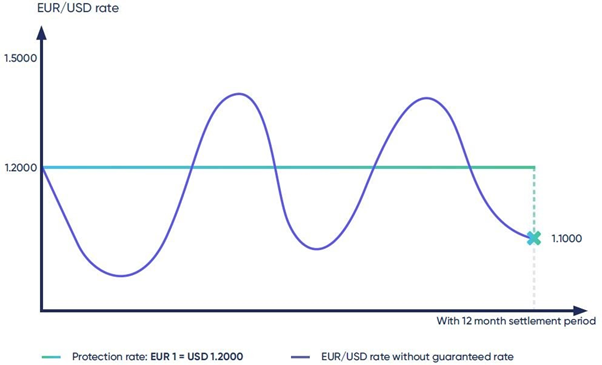What is hedging?
Key takeaways
- Hedging is a risk management strategy.
- Hedging is like insurance against a negative impact event on a business bottom line.
- There are several hedging strategies that could be employed to increase certainty and improve consistency of income and expenditure.
- Our article deals with hedging the impact of FX volatility.
Hedging. No, it is nothing to do with gardening. Instead, it is a range of risk management strategies, aimed at minimising the impact of FX volatility when a business has exposure to the currency markets. For example, when a UK business must pay an international supplier for goods or services they have bought.
Typically, such strategies involve the use of spots, forwards, and derivatives – currency options – with Caxton being authorised and regulated to deal in both. These products provide both small and larger businesses alike with increased certainty and visibility over their currency exposure. Certainty which can improve relationships with clients and suppliers, while also increasing the profitability of an enterprise.
What is FX hedging?
Hedging is best thought of as a form of insurance, in most cases. Companies, by taking advantage of risk management strategies, are effectively insuring themselves against the impact of a negative event on their bottom line. Hedging does not prevent the negative event from happening – booking a forward to buy USD will not stop cable from falling – but it significantly reduces the detrimental impact that such an event can have.
How to implement a hedging strategy
Forward contracts are, perhaps, the simplest approach to risk management; locking in an exchange rate now, for delivery of the currency on a fixed date in the future. Flexibility can also be built in, allowing a proportion of the contract to be ‘drawn down’ prior to maturity, if so required.

While simple, the ‘set and forget’ approach offered by forwards may not be suitable for all businesses. Of course, the approach provides complete certainty over the achieved exchange rate, and eliminates the impacts of volatility from the transaction. That said, a forward does not provide the ability to benefit from favourable market movement over the term of the contract.
In order to achieve this, options contracts are required. Options provide the buyer with the right, but not the obligation, to perform a pre-agreed exchange; enabled via the payment of an upfront premium. While only available to select companies meeting strict appropriateness criteria, such products can offer full protection on the downside, while also allowing participation in favourable market movement. Options contracts can also be tailored, allowing a bespoke strategy to be created specific to the needs of an individual business.
Strategies can also be combined, creating a blended approach to hedging currency risk. Depending on individual risk appetite, a company may wish to leave a proportion of their exposure uncovered, transacting in the open market as and when required. By working with a specialist, companies can build a strategy that works for them, minimising market risk, while maximising opportunity.
Hedging in Practice – limiting exposure to volatile FX markets

The CEO of an international plant manufacturing recently highlighted how Caxton helped them navigate the currency markets and set a plan in place.
“Caxton limits our exposure to changes in the market. So, we’re able to sell internationally as well as actively manage our foreign exchange rate.”
“Caxton devised a plan to guarantee our exchange rates, despite the fact that Swedish Krona can be more difficult to plan for the future. The team’s experience leaves me to focus on daily operations. And if I have any queries, our dedicated account manager is always on had to help me, no matter what.”
For more information and to get daily financial market updates, please visit the Managing Risk page on our website.
READ THE FULL CASE STUDY.
Don't let FX losses turn operating profits into a bottom line loss
Our expert analyst insights delivered straight to your inbox will inform you:
- What's affecting todays currency valuation
- What's priced into tomorrow's
- What the short term view is
- Wider economic considerations
- Key economic dates
Covering key currency pairs including GBP-USD and GBP-EUR our analyst will be tracking all G10 currencies.
Whether you're a large business making sure a bad currency decision doesn't turn an operating profit into a bottom line loss, a small business looking to manage imports and exports, or a regular individual looking to make a large purchase or sale of foreign asset, stay ahead of the curve with the daily email that puts you in the drivers seat of currency transactions.
Was this article useful? Try:
If you're looking for more information on managing FX risk then check out our Managing Risk Hub or check out our FX glossary for frequently used terms.
Caxton Payments is an alternative to traditional banks, established over 20 years, we help businesses make faster payments more reliably. We offer streamlined processes, automation through API and a collaborative solution to complex payment issues all from a single platform. Our payment capability extends from business expense management, to payroll payments, supplier payments, and currency risk management. We also offer personal prepaid travel cards and international money transfer
-modified%20(2).png)


